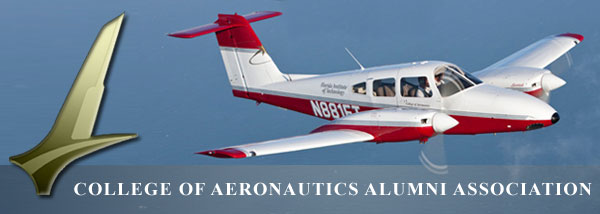Florida Tech’s Aviation Safety “Stand Down” Symposium
Back in October, flights were canceled and the College of Aeronautics (COA) gathered together in the Gleason Center for the Performing Arts to discuss safety in the aviation industry. The discussion was named an aviation “stand down,” which meant that flight students and faculty were unable to fly this day. This event was held by the College of Aeronautics Alumni Association (COAAA), COA, and FIT Aviation. The symposium was an all-day event lasting from 8 a.m.- 5 p.m. during FIT’s homecoming week. It consisted of speakers, panels and a surprise for FIT.
The keynote speaker, Jeff Guzzetti, discussed how crucial safety is in the aviation industry. He elaborated on his experience of over 23 years of accident investigation with the National Transportation Safety Board (NTSB), Cessna and the U.S. Navy. He currently serves as the assistant inspector general for aviation for the U.S. Department of Transportation. He also happens to be an aeronautics engineer and pilot. Other key speakers included Jill Andrews, an Air Safety Investigator from the NTSB. COA alumni were also in attendance to offer words of wisdom to current students pursuing a career in aviation. Many of the alumni are commercial pilots or successfully working in an area of their expertise.
The symposium consisted of four general sessions. One session included a discussion about the new air transport pilot (ATP) regulations. The Colgan Air Flight 3407 crash in 2009 caused a ripple effect in the industry resulting in a change of procedures. In previous years, obtaining an ATP was earned after 1,000 flight hours. Now, the requirement is 1,500 flight hours. In addition, in order to become a first officer for an airline, the pilot is required to get the ATP before being allowed to fly. Restricted ATP is an exception granted by the Federal Aviation Administration to flight programs that allows students an opportunity to receive a modified ATP after 1,000 flight hours. This section of the symposium discussed the effects these changes would have on current students and how best to handle the shift.
There was a surprise in store for the FIT community as well. Before the lunch break, CommutAir (participants in the symposium) announced they would partner with FIT to help students gain hands-on experience and potential job opportunities. Essentially, if students qualify for the program, they will be offered a job through CommutAir. It is a chance for students to have job security before graduating. This is exciting opportunity will open the door for many of our aviation students.
To wrap up the day, the alumni, faculty and COA students gathered together at FIT Aviation to network, eat and have a fun time. They even set up a simulator to test pilot skills. The simulator acted as a contest and the battle for perfection was heated. The COA faculty gave alumni a run for their money. In the hangar, you could see out onto the flight line while enjoying the company of other aviation enthusiasts.






